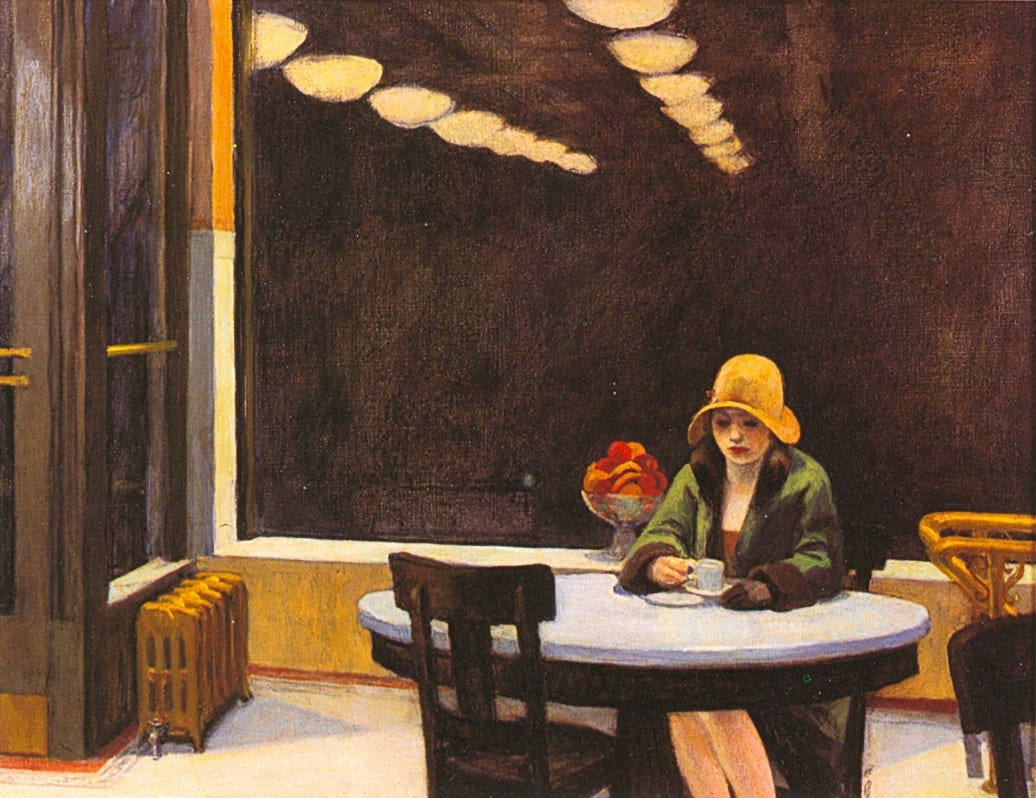On subjectivity
And the necessity to engage on this messy level
I've struggled with the concept of the "Science of Planning", the title of the Masters degree that I received. It gives me the sense that there exists some sort of body of knowledge that represents the objective optimalization of cities, that urban planners collectively agree on working towards.
In reality, the making of cities is an absolute power struggle shit show.
The current form of the city reflects the subjective actions of every person that lived and worked in the city before you. Subjectivity is necessary because we’re trying to make decisions that intrinsically have no right answer. Do we dedicate a space to cars, or pedestrians? Allow one home, or 100 homes? Do we fund new highways, or new transit? And anyone with enough power and clout can come and affect change in the city, even if it only benefits the few, and is to the disadvantage of many.
The city is the arena where our most important values duke it out.
Further, the city is a representation of our societal values.
Therefore, there is no such thing as neutrality in planning.
This means that as urban planners, we should acknowledge that our tools and principles are biased.
We must know the values that result from our recommendations and decision-making.
Every vote for or against a change to the city is an endorsement to something.
And maybe it shouldn't be the "Science" but the "Political Art" of planning.
🐦 Tweet: Monopoly's lost half
This week I learned that the board game Monopoly had an alter ego called The Landlord's Game. This version introduced the Georgist idea (named after Henry George, a super interesting progressive dude from 1800s) of a Land Value Tax which demonstrated how wealth and prosperity could be distributed to the masses, rather than consolidated to a single winner. The alternate rules to the game have some very interesting mechanics that somewhat simulate a real economy and illustrate this Georgist concept elegantly.
I was further "shook to the core" when I learned that the true game creator, Lizzie Magie Phillips, was never properly credited or given royalties for the game when Parker Bros. decided to manufacture it for the masses. It's a long story.
This simple game goes to show how neutrality in the city cannot exist. At the foundation is the assumption that every player/resident of a city is going to optimize their actions and choices based on achieving individual benefit. In the pursuit of prosperity on the individual level, The Landlord' Game proves that our economic systems can use this behaviour to create extreme inequality, or try to eradicate them.
🧠 Thought: Art and the individuality of experience
...everything always breaks down to the individual — individual suffering, individual failure. And no matter what group you belong to, I think that individuality of suffering and possibility and hope is the fundamental building block of human experience. And it is that — it is only to that — that art can say anything. Art can say very little about groups or general movements.
I was listening to an interview with the artist Enrique Martinez Celaya on Krista Tippett's podcast "On Being". His statement that art can only say something about the individuality of human experience struck a chord with me.
First of all, it acknowledges this existential aloneness that none of us can escape. We can never know what it is like to be another person.
Second of all, art is always a relationship between it and the individual. No-one else can participate in this exchange.
Lastly, in spite of the population density and crowded nature of cities, artists seem to always come back to the motif of the lonely urban dweller. Maybe this is not random.
📖 Word of the week: Qualia
Qualia is the plural word (Quale for singular) for "individual instances of subjective, conscious experience".
…Eh?
Qualia is the subjective part of a subjective experience. It represents the mental states of noticing an experience.
The philosopher and cognitive scientist Daniel Dennett once suggested that qualia was "an unfamiliar term for something that could not be more familiar to each of us: the ways things seem to us".
Further, Dennett describes four essential qualities of qualia in the following way:
ineffable – they cannot be communicated, or apprehended by any means other than direct experience.
intrinsic – they are non-relational properties, which do not change depending on the experience's relation to other things.
private – all interpersonal comparisons of qualia are systematically impossible.
directly or immediately apprehensible by consciousness – to experience a quale is to know one experiences a quale, and to know all there is to know about that quale.
While it is really hard to explain the word Qualia, it seems quite important. Entire branches of Philosophy depend on it. And any argument about a subjective topic (the feeling of pain, the redness of red, the taste of coffee, the value of transit) would be based on qualia.
While subjectivity seems to be essential for the formation of human settlements, it remains an under-developed aspect of the English language. We still have a way to go when it comes to carrying mature conversations about subjective experiences.
Thanks for reading! If you liked it, do give it a ❤️
Stay safe and stay curious.
— F
📽🌆
PS. I did watch Shang-Chi🐉 and it was pretty awesome. Already a big Simu Liu fan here, but Awkwafina was my favourite! So human and relatable!



